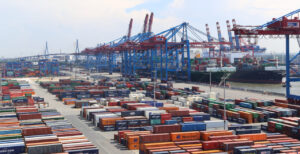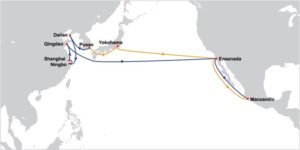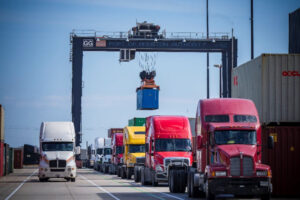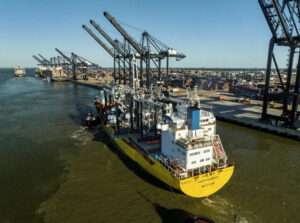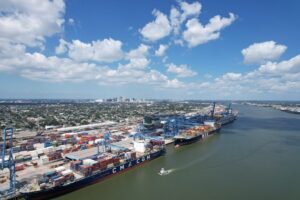One of the world’s largest terminal operators has forecasted digital twin technologies as one of the most important areas of investment for terminal operators in the coming years.
Digital twins, which are digital representation or ‘twin’ of a physical object or system can take whole components of a physical entity and virtually map that body into a 3D interface.
Digital twins can provide benefits ranging from carbon emissions output monitoring of cargo handling equipment to predictive analysis for increases in cargo volumes for the twin operator.
In a TOC Asia event on 20 April as part of Singapore Maritime Week, Tan Chong Meng, Group CEO at PSA International, highlighted the emergence of digital twin technologies in reducing carbon consumption in ports and maritime.
Responding to PTI’s question on emerging technologies investment, Tan said terminal operators should start with digital twins as it allows ports to use data to understand and measure its processes and outputs.
“[A Digital twin] forces you to know the processes you know in the first place,” Tan said.
“If you are attempting to build a digital twin… you are aware of the current baseline of where you are starting from. Once you have the knowledge, you can evolve, and refine solutions by learning from the data – and you can really make an impact.”
Tan also said that investment in 5G infrastructure will become key for terminal operations.
Tan said a higher speed digital infrastructure allows ports to take advantage of low-latency and high bandwidth benefits, make actionable decisions from real-time information of daily yard operations.
However, Meng said that digital twins investment is important at this point in time because no logistics industry actors currently have a full digital twin of the end-to-end supply chain process.
“If more of us can get on the journey of trying to describe how we do in a digital setting, building data which becomes knowledge for the future, the longer we’ll be able to address our deep-seated issue [of the climate emergency],” he explained.
As part of PSA International’s wider sustainability work, Tan said the company’s Common Data Infrastructure (CDI) vision seeks to connect global supply chains via a trusted, secure data-sharing infrastructure – providing visibility for all actors in the supply chain.
Tan said a comprehensive CDI will allow logistics players from port operatives to freight forwarders to better understand the cargo flow of the supply chain and thus reduce inefficiencies and carbon consumption.


